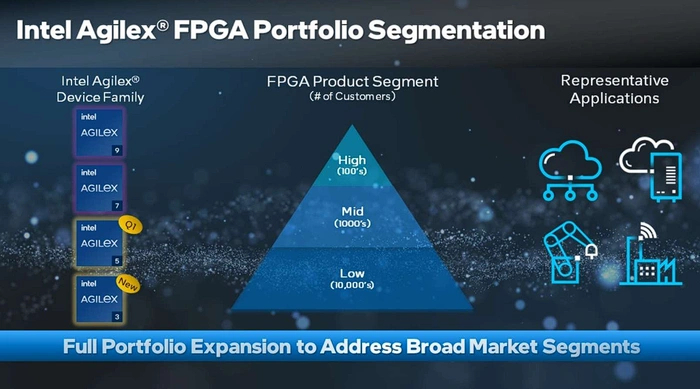In a significant move to meet the growing demand for customized workloads, enhanced AI capabilities, and lower total cost of ownership, Intel has broadened its Programmable Solutions Group (PSG) offerings and expanded its Intel Agilex FPGA portfolio. This expansion is a testament to Intel’s commitment to providing flexible and customizable platform capabilities for demanding applications and workloads, a role that Intel’s FPGAs have been playing crucially.
The new products and technologies were showcased at Intel’s FPGA Technology Day on Sept. 18, marking a significant milestone in Intel’s FPGA business. In 2023 alone, Intel has released 11 of the expected 15 new products, setting a record for the number of new product introductions in a single year.
Intel’s PSG business unit has been performing exceptionally well, as evidenced by a 35% revenue growth year-over-year reported in its second quarter 2023 earnings call. This growth is a clear indication of the increasing demand for Intel’s FPGA solutions and the company’s ability to meet this demand with innovative and efficient products.
The expanded Intel Agilex portfolio includes feature advancements designed to help developers build solutions more quickly. This is a strategic move by Intel to empower developers and accelerate the development of new applications and solutions.
In a bid to foster open-source development, Intel is releasing Open FPGA Stack (OFS) to open source. This is a significant step towards promoting transparency and collaboration in the development of FPGA solutions. Developers now have full access to the open-source Open FPGA Stack (OFS) hardware code, software code, and technical documentation for platform and workload development.

Other articles you may find of interest on the subject of Intel technologies and hardware :
Intel has also launched the first production adapter based on Intel’s F2000X infrastructure processing unit (IPU) platform. The first F2000X IPU-based production adapters have been launched, with production adapters available from Napatech. This marks a significant milestone in Intel’s IPU platform development.
In addition to these, Intel revealed additional information about two new Intel Agilex 3 FPGA Series: the B-Series and C-Series. These new series are expected to further enhance the capabilities of Intel’s FPGA portfolio and provide more options for developers and businesses.
Intel is also expanding its early access program for the Intel Agilex 5 FPGA E-Series, which delivers cost-effective power and performance for embedded edge applications. This expansion is expected to provide more developers with the opportunity to leverage the capabilities of the E-Series for their applications.
Furthermore, Intel Agilex 7 FPGAs with R-Tile are now shipping CXL IP with 2.0 features in volume. This is a significant development that is expected to enhance the performance and capabilities of the Agilex 7 FPGAs.
Finally, Intel is launching a new processor in the Nios V family: the Nios V/c compact microcontroller. This is a free, soft-core IP based on the RISC-V architecture, further expanding the options available to developers.
In conclusion, Intel’s expansion of its FPGA portfolio and the broadening of its PSG offerings is a strategic move to meet the increasing demand for customized workloads, enhanced AI capabilities, and lower total cost of ownership. With the release of new products and technologies, Intel continues to play a crucial role in providing flexible and customizable platform capabilities for demanding applications and workloads.
Source: Intel
Filed Under: Technology News, Top News
Latest TechMehow Deals
Disclosure: Some of our articles include affiliate links. If you buy something through one of these links, TechMehow may earn an affiliate commission. Learn about our Disclosure Policy.
